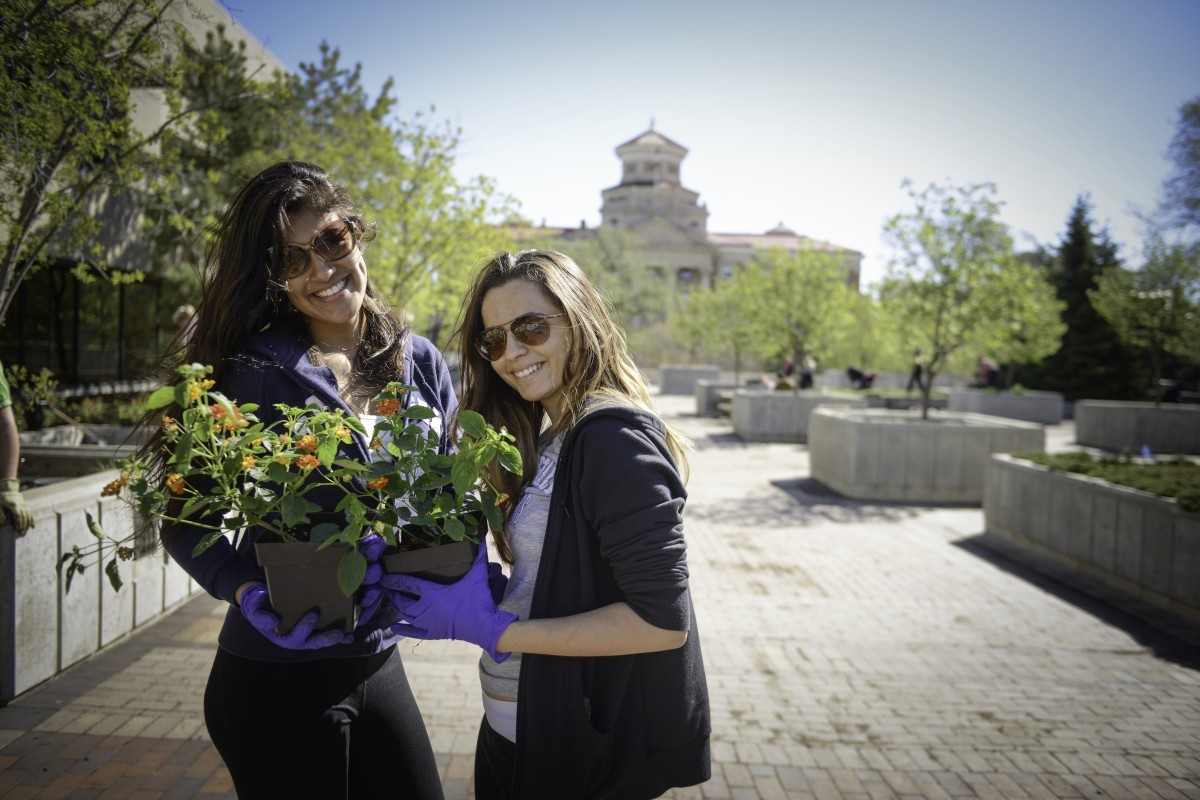
Campus Beautification Day: ‘Playing in the dirt makes you more intelligent’
June 6 is Campus Beautification Day on both the Fort Garry and Bannatyne campuses from 9 a.m. until noon.
Plant or rake or weed or spread soil and mulch. However you wish to help make your campus a place to call home, join us. Refreshments and lunch for all volunteers! Bring your travel coffee mug and water bottle to this eco-friendly event. For more information, talk to your department contact or contact Leah Naumik at 204-474-8912 or campbeau [at] umanitoba [dot] ca.
The benefits of Campus Beautification are many, and here is one angle an alumna took in a recent blog post. Stephanie Westlund earned her PhD in Peace and Conflict Studies from the U of M in 2013. She is the author of Field Exercises: How Veterans Are Healing Themselves through Farming and Outdoor Activities, and she maintains her blog Our Common Nature.
Here’s her blog post from Sept. 13, 2013:
Playing in the dirt makes you more intelligent
Have you ever noticed how a walk outside seems to clear your head?
In my last post, I shared the research about how a strain of bacteria commonly found in soil, Mycobacterium vaccae (M. vaccae for short), triggers the release of serotonin, which helps to regulate mood.
Serotonin’s role in learning and cognition
In addition to mood, many bodily processes are regulated by serotonin—among them, aggression, appetite, sleep, respiration, and endocrine function.
Serotonin also supports learning and cognition. Knowing this, two researchers at The Sage Colleges, Dorothy Matthews and Susan Jenks, decided to find out whether ingesting live M. vaccae would decrease the stress response in mice, while at the same time improving the mice’s learning ability.
And their research found this to be true!
Bacteria in the soil makes us temporarily smarter and less anxious
Mice that ingested live M. vaccae prior to and during Matthews and Jenks’ experiment were able to navigate more quickly through a complex maze—almost twice as fast as the control group!—while also demonstrating fewer anxiety-related behaviors.
But the M. vaccae effects were temporary; Matthews and Jenks tested both groups of mice again three weeks later (after none of the mice had ingested M. vaccae for three weeks), and there was no longer a difference in their maze performance and anxiety levels.
The bottom line
The primary way that we take in M. vaccae is by ingesting or inhaling it while spending time outdoors. This research suggests that continual interaction with natural environments brings the most benefits.
So turn off your computer and get outside. You might just start to feel a bit smarter!
References
Dorothy M. Matthews, and Susan M. Jenks. (2013). Ingestion of Mycobacterium vaccae decreases anxiety-related behavior and improves learning in mice. Behavioural Processes 96, 27–35.






